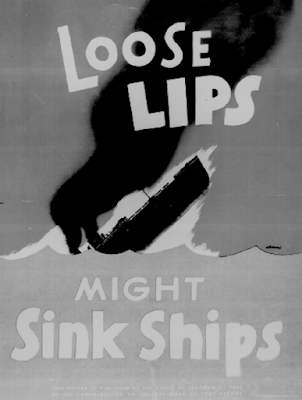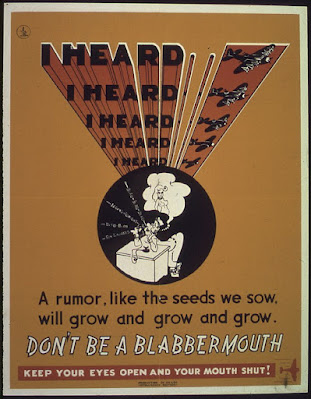The Difficulties Surrounding Cancel Culture
What Makes Cancel Culture Fail
The three main concepts that make cancel culture not work is the lack of information/spread of misinformation, using cancel culture as a means of destruction, the inability for people to look at the context of the situation, and the mob/sheep mentality people have.
Oftentimes, people will hear something in a rumor or from a source that is not really reliable yet believe it. From then on, the rumor just continues to spread like wildfire and no one fact checks any of the information they heard and just believes it. As discussed previously, there are also situations where people choose to use the effects of cancel culture as a means to attack people’s reputation or careers. I want to point out that this of course does not happen 100% of the time, but it has happened before. What this turns into is exploiting the effects of cancel culture for self benefit either because of a grudge or because someone doesn’t like someone else(political or other reasons). Holding someone accountable, which is the devised purpose of cancel culture, turns into an attack on the person. There are also the situations where people choose not to look at context. Context matters. People choose to often say that someone's actions are inexcusable regardless of the context which is sometimes true, but should always be taken into consideration. What was going on at the time of whatever happened to cause outrage matters because it is a part of the story. Not taking context into consideration is essentially admitting to not looking at the full scope of the situation. Finally, there are also the situations where people just follow what everyone else is doing and choose to participate in the attacks. Oftentimes however, they do this because these people do not have the choice. If a person doesn’t participate in the attacks, the result is that other people assume that person either supports the person/business/ politician/company/celebrity getting attacked or doesn’t care about the cause. So the result is people get swept into something that they might not want to because they want to hear more information about the situation or they want to express themselves in a different way.A Difficult Approach: Kanye West
A recent event in celebrity news is Kanye West recently saying some rather questionable stuff online. Kanye was on-air with Alex Jones and blatantly said “I like Hitler.” Kanye went on to continue praising Nazi’s also saying that “He likes Jews but also likes Nazi’s.” Now is there context to this situation that it makes it okay? Not really, Kanye just said he "likes" someone who was responsible for the death of 6 million Jewish people during the holocaust and supported a period of time that most would consider the darkest part of Germany’s history. He wasn't saying it as any sort of joke or as a story, he was genuinely admitting this.
Now I am obviously not the only person who enjoys some of Kanye’s music, but it begs the question of what is the solution? Kanye has good music, yet if I were to listen to his songs, I would be supporting someone who said things that are unacceptable. I am of course someone who does not support anything at all with the holocaust and can not find enough ways to condemn what happened. So is it possible to support the music but not the artist? This is where the pros and cons of cancel culture come to the forefront. The truth is that people who like Kanye’s music are not going to stop listening to his music. That statement might cause some disagreement, but it’s just the truth. These people would argue that it is okay to listen to Kanye’s music because they don’t personally support anything to do with the holocaust either. Others would say that everyone needs to stop listening to all of Kanye’s music right now because his statements on-air are completely inexcusable. What happens in this case is there are two sides, and the way it works is pick a side and get ready to attack the other side of the argument. So again, it begs the question if it’s “allowed” to like the music but not like him? Now of course this is just Kanye, but what about the other one thousand other examples out Link to Attribution there? What about R-Kelly, who has been convicted for numerous sex offenses? He still draws many listeners despite his conviction. In either of these two cases, it is really difficult to find a right answer.
Solution
The short answer is that there isn't one. Every situation is going to have a different solution for every single person and it's also going to be dependent on the actual solution, mainly the severity. As an example, say Kanye were to give a public apology where he basically states that what he said was wrong and that not only should he not be condoning that, but also understanding how wrong it is to say what he was saying. For some people, that might be completely enough, because he admitted fault and that he was wrong, and those people might continue listening to his music. These people were able to forgive, but if you were a part of the Jewish faith, or any other persecuted minority group during the holocaust, that apology might mean nothing. For some, the damage is done and there is realistically no recovering from that one. Apologies only go so far for some people which further complicates this situation. If in life an apology meant you were totally off the hook with every single person for your wrong doing, than that would be the solution, but it isn't that easy. On the most basic level for a mistake is that after whoever makes the mistake needs to own up to the mistake, apologize, and learn from it. This is where one of the biggest difficulties of cancel culture becomes apparent, outlined in the theoretical Kanye apology, where do you draw the line? In other words, at what point is someone's mistake too far for them to come back from it with a apology? Some might argue that the line is when someone breaks the law. But is that enough?




Comments
Post a Comment